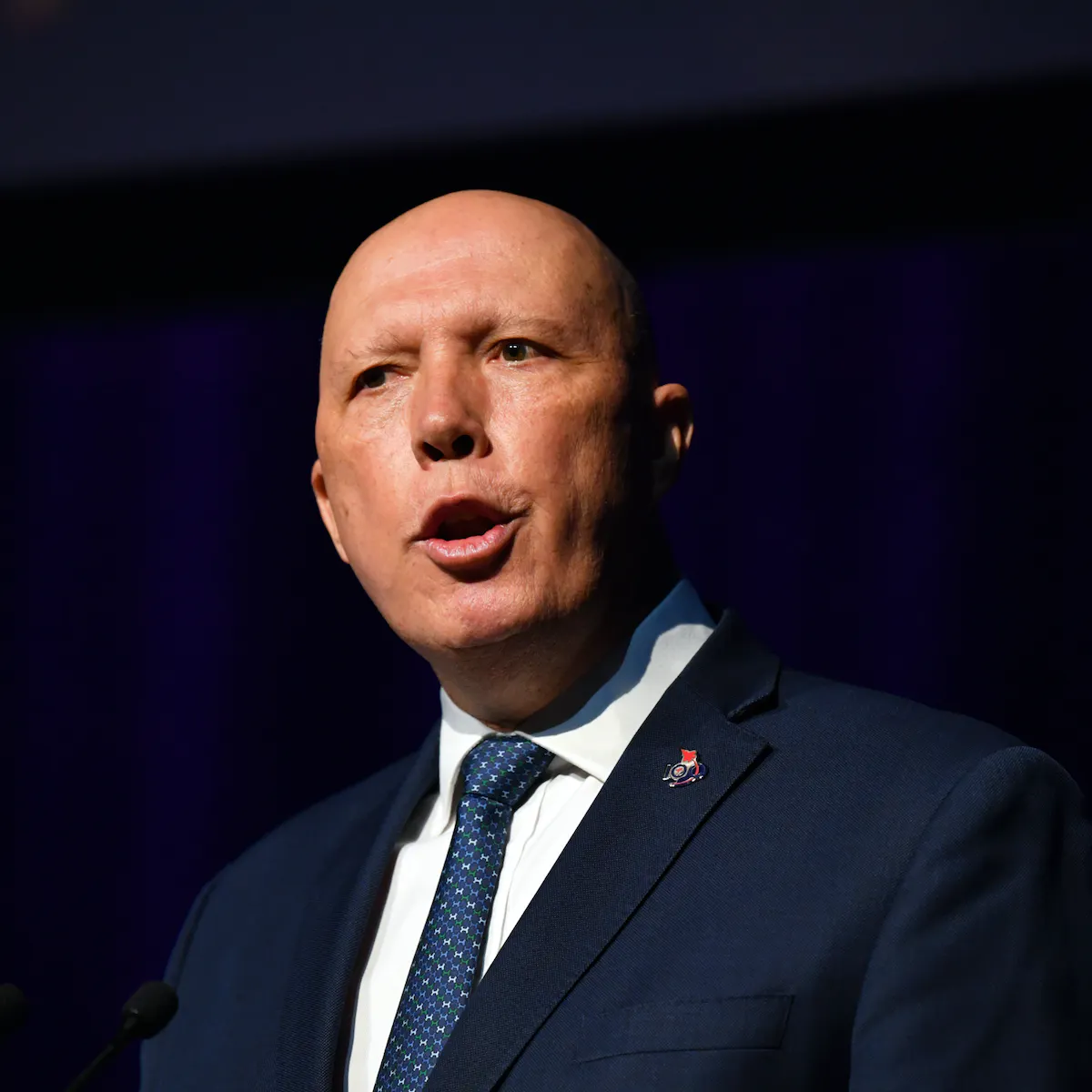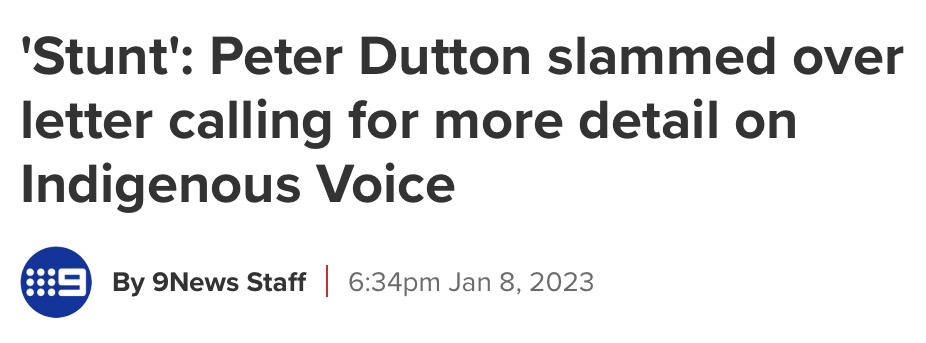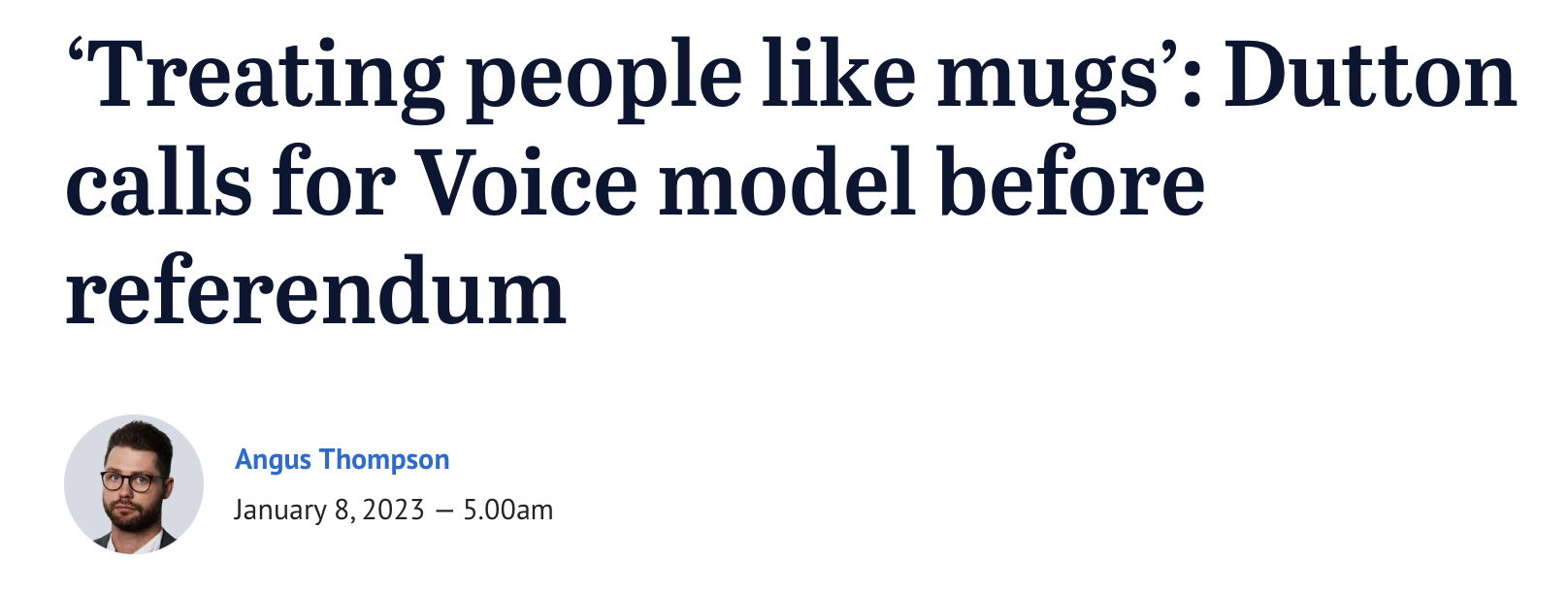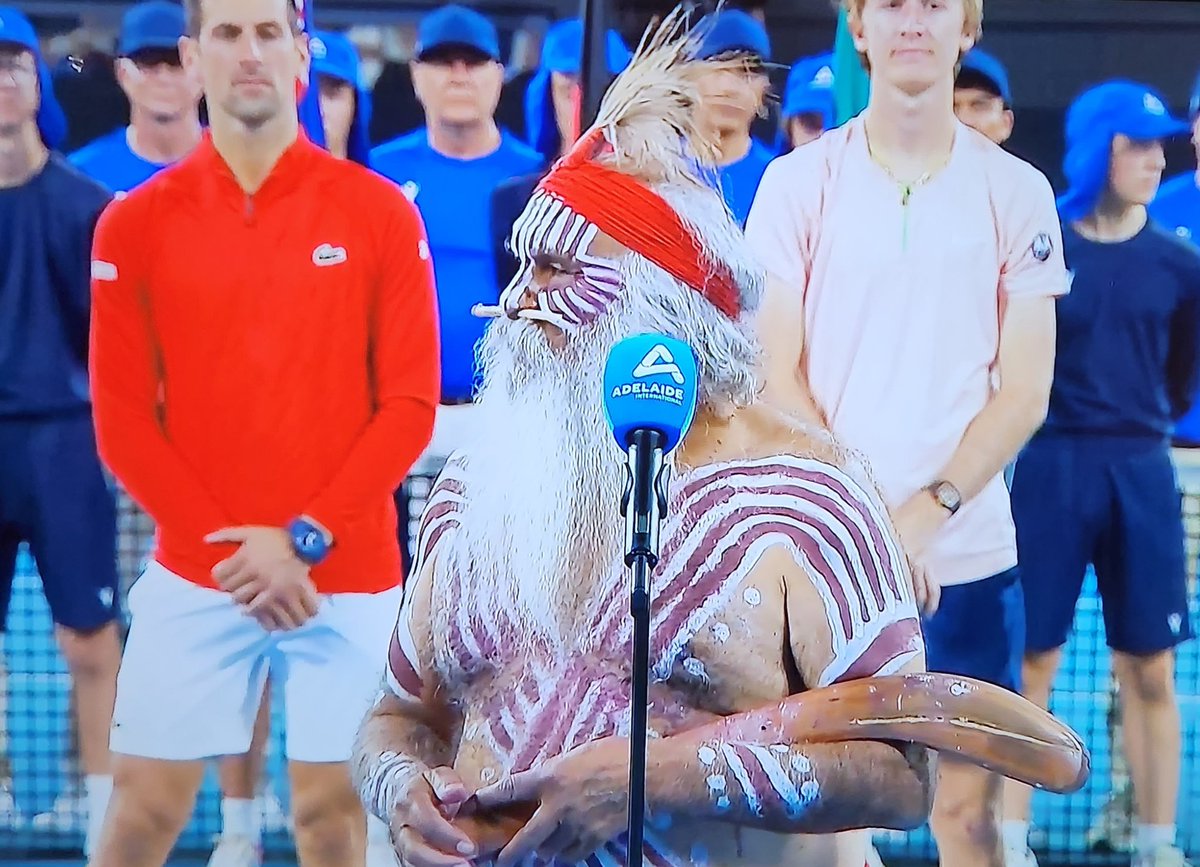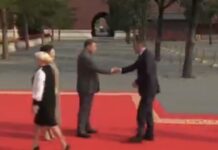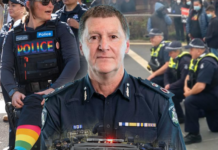Headlines are screaming today that Australia’s opposition leader Peter Dutton has opened up a chasm of policy difference between the Liberal Party and the Labor Party regarding the upcoming referendum to establish a Third Chamber of Parliament for aboriginal activists under the pretext of giving them a “Voice to Parliament”.
The coverage from purported “trusted sources” has focused almost exclusively on soundbites, for example the comment “treating people like mugs”.
None of the coverage appears to acknowledge Dutton’s warning that a lack of information could lead to a failure for the yes vote appears to hedge his bets, if not provide actual tacit support for the Third Chamber of Parliament.
Instead, the usual suspects in the aboriginal identity politics industry are screaming that Aussies already have all the information that we need on the Voice, even though the government has decided not to fund the usual information packs traditionally sent to voters providing arguments on both sides of a referendum decision, to avoid offending said aboriginal identity politics industry insiders.
Tellingly, none of the Lying Press articles actually link to the full text of Dutton’s open letter to the Prime Minister. You have to go to his Twitter page to find it.
It is terribly un-XYZ-like to provide a less sensationalist headline, let alone coverage of a topic, but let us look at the full text of Dutton’s letter and his fifteen questions, and spend a few moments examining the key points:
Dear Prime Minister,
I write in relation to your proposal to constitutionally enshrine an Indigenous Voice (The Voice) to Parliament via a referendum this year.
As you know, I have been constructive and supportive of the Government on a number of issues where it is in the national interest to do so. I am committed to being constructive on the issue of reconciliation and as you are aware from our discussions the Coalition will support any sensible and practical measures to improve the lives of Indigenous Australians.
If the referendum is successful, a constitutionally enshrined Voice to Parliament will be a body without precedent and a significant change in how Australia is governed. Many Australians do not understand the scope and operation of the Voice and expect comprehensive information before being asked to vote. Regrettably, it now appears clear that your political strategy is to not provide adequate detail for Australians to make an informed decision.
I believe you are making a catastrophic mistake in not providing accessible, clear and complete information regarding your government’s version of the Voice, condemning it to failure and, in turn, damaging reconciliation efforts in our country. Your approach will ensure a dangerous and divisive debate grounded in hearsay and misinformation. I have attached a list of issues which many people have raised as not being adequately addressed to date.
You have engaged two of our country’s smartest political operatives, but their advice to you on rushing the referendum and not providing details to the Australian public is wrong and must surely go against your natural instinct.
All voting Australians have a right to make a fully informed decision when considering an issue as significant as changing our Constitution. Australians expect the Government to provide the necessary and balanced information to support them in making a decision and to ensure transparency and integrity of the process. In turn we all have an obligation to respect the outcome. Your government’s position that detail isn’t needed before a vote and will be contained in subsequent legislation is unreasonable, disrespectful to the Australian public and undermines the integrity of the process.
In refusing to provide basic information and answer reasonable questions on the Voice, you are treating the Australian people like mugs. Publicly releasing the details on how the Voice will operate will enable Australians to assess whether it would be representative of remote Indigenous people; whether its structure was effective or just another layer of bureaucracy similar to the failed ATSIC; and whether it would interfere with the system of Government which has kept our country a stable and peaceful democracy for over a century.
Both sides of Parliament seek better opportunities and outcomes for Indigenous Australians. The incidence of sexual assault, domestic violence, and health outcomes, among many other issues, in Indigenous communities (particularly in regional and remote areas) is a national disgrace. It is imperative you explain how a constitutionally enshrined Voice to Parliament will deliver tangible improvements in the lives of Indigenous Australians, which must remain the priority of Government.
Given your government has been in office for seven months and has the ability to pass legislation in both houses of Parliament, legislation for a Voice could be enacted when Parliament resumes at the beginning of next month. This would allow you to demonstrate the effectiveness of your preferred Voice model in closing the gap.
The Government must stop playing clever and tricky political games by withholding detail and rushing the referendum. I again call on you to provide Australians with the necessary detail on how the Albanese government’s version of the Voice will operate.
Yours sincerely,
PETER DUTTON
7 January 2023
Australians are none the wiser about the Voice – what, who, where, when and how. They seek detailed information on the following:
- Who will be eligible to serve on the body?
- What are the prerequisites for nomination?
- Will the Government clarify the definition of aboriginality to determine who can serve on the body?
- How will members be elected, chosen or appointed? How many people will make up the body?
- How much will it cost taxpayers annually?
- What are its functions and powers?
- Is it purely advisory, or will it have decision-making capabilities?
- Who will oversee the body and ensure it is accountable?
- If needed, can the body be dissolved and reconstituted in extraordinary circumstances?
- How will the Government ensure that the body includes those who still need to get a platform in Australian public life?
- How will it interact with the Closing the Gap process?
- Will the Government rule out using the Voice to negotiate any national treaty?
- Will the Government commit to Local and Regional Voices, as recommended in the report on the co-design process led by Tom Calma and Marcia Langton?
- If not, how will it effectively address the real issues that impact people’s lives daily on the ground in the community?
Note that on several occasions Dutton goes straight to the heart of the matter – the seriousness of changing the Australian Constitution. The Constitution protects the Australian people from our government. It is the one document which is supposed to restrain our leaders from becoming tyrants.
Given the escalating tendency of the Regime to lockdown entire cities, compel the population to undergo invasive medical procedures, shoot peaceful protesters and to jail or even outright murder political dissidents, changing one of the few institutions which still holds our rulers in check should be taken with the utmost caution. A lack of information regarding the changes only heightens suspicions as to the motive.
These suspicions increase when considering that said changes would favour one ethnic group over all other ethnic groups in the country. Several of Dutton’s questions refer to the potential for the so-called “voice” to expand its power to become a third chamber:
- What are its functions and powers?
- Is it purely advisory, or will it have decision-making capabilities?
- Who will oversee the body and ensure it is accountable?
- If needed, can the body be dissolved and reconstituted in extraordinary circumstances
- Will the Government rule out using the Voice to negotiate any national treaty?
It is the nature of public institutions to increase in power, scope and budget. If these concerns are not thoroughly quelled before a vote, the “voice” is practically guaranteed to engage in mission creep.
Two of Dutton’s questions open up cans of worms which could easily require seperate referenda:
- Will the Government clarify the definition of aboriginality to determine who can
serve on the body?
- Will the Government commit to Local and Regional Voices, as recommended in the report on the co-design process led by Tom Calma and Marcia Langton?
Given there are purportedly hundreds of aboriginal “nations”, should each one of them get their own “voice to parliament”? Hey at least it would be fun:
Finally, at no point in Dutton’s letter does he state his support for White, Anglo Australians. We are regularly scolded that Australian parliaments are “still” majority White even though Anglo Australians are now a real minority. Yet no politician in the country, not even Pauline Hanson, is explicitly pro-White. The last one to advocate for White interests, Fraser Anning, has been essentially banished from the country.
Like every other Australian politician, Dutton couches the Liberal Party’s slight differentiation in policy from the Labor Party in terms of advocacy for aboriginals. He merely disagrees on the method and detail. His primary concern is so-called “reconciliation” and “closing the gap”.
Anglo and White Australians don’t even get a look-in.
Dutton could well be hedging his bets, keeping open the possibility of opposing the so-called “voice”. Again if the Liberal Party does oppose the “voice” it will frame such opposition in terms of its advocacy for aboriginals.
Australia was founded as an explicitly White Nationalist country by explicit White Nationalists to establish a homeland for their White, Anglo, Saxon and Celtic descendants. The entire Australian political system is now institutionally anti-White, and they plan to alter one of the last obstacles in their path – the Australian Constitution – which prevents outright oppression of White Australians.

